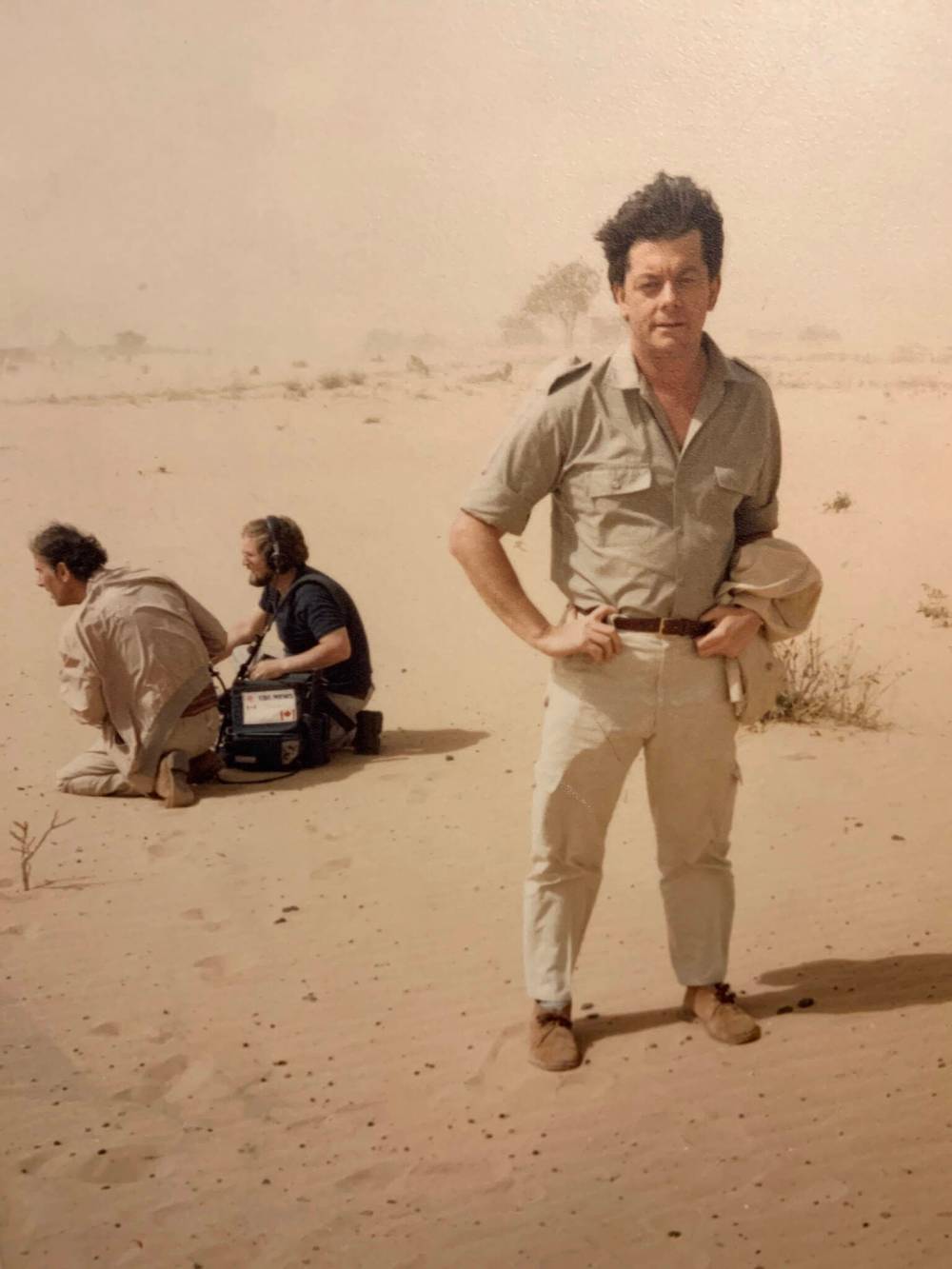Into the fray
Foreign correspondent had front-row seat to political upheavals, famine and more
Advertisement
Read this article for free:
or
Already have an account? Log in here »
To continue reading, please subscribe:
Monthly Digital Subscription
$1 per week for 24 weeks*
- Enjoy unlimited reading on winnipegfreepress.com
- Read the E-Edition, our digital replica newspaper
- Access News Break, our award-winning app
- Play interactive puzzles
*Billed as $4.00 plus GST every four weeks. After 24 weeks, price increases to the regular rate of $19.00 plus GST every four weeks. Offer available to new and qualified returning subscribers only. Cancel any time.
Monthly Digital Subscription
$4.75/week*
- Enjoy unlimited reading on winnipegfreepress.com
- Read the E-Edition, our digital replica newspaper
- Access News Break, our award-winning app
- Play interactive puzzles
*Billed as $19 plus GST every four weeks. Cancel any time.
To continue reading, please subscribe:
Add Winnipeg Free Press access to your Brandon Sun subscription for only
$1 for the first 4 weeks*
*$1 will be added to your next bill. After your 4 weeks access is complete your rate will increase by $0.00 a X percent off the regular rate.
Read unlimited articles for free today:
or
Already have an account? Log in here »
Former CBC television reporter Brian Stewart’s memoir On the Ground doubles as a discerning take on recent Canadian and global history.
He both brings the reader inside his life and mental health, and invigorates accounts of his gigs as a foreign correspondent with on-the-ground analysis.
Apart from a brief stint with NBC, Stewart, now 83, spent his entire television reporting career with CBC television until his retirement in 2009. He chronicled pivotal global events: the fall of the Berlin Wall, the collapse of the Soviet Union, civil war in Lebanon, the struggle against apartheid in South Africa and the Gulf War.

SUPPLIED PHOTO
In this photo taken in Tigray in northern Ethiopia, Brian Stewart (next to camera operator) listens to stories from refugees at a relief centre while covering the 1983-85 famine.
But the story that touched him most, then and now, was the 1983-85 famine in northern Ethiopia.
A starving child’s fast-ebbing life, captured by Stewart via the medium of television, became the Ethiopian famine’s face to the world. It’s also the story that opens his memoir, and permeated his life thereafter.
The book consists of chronological chapters, save for the opening chapter, and except for five brief italicized inserts Stewart dubs “Interludes” — variously either personal asides or highlights of interviews with historical notables including Nelson Mandela, Lech Walesa and Margaret Thatcher.
Stewart saw a lot of gritty, gruesome and gory stuff over his career as a foreign correspondent.
What he witnessed took its toll.
He didn’t suffer classic post traumatic stress disorder (PTSD). But he was, late in his career, diagnosed with a similar and related malady called “conversion disorder,” a condition that “reroutes (converts) emotional distress into physical symptoms,” as he describes it.

Katie Stewart photo
In his career Stewart, now 83, chronicled pivotal global events including the fall of the Berlin Wall and the famine in northern Ethiopia.
For him, that translated into “loss of clear speech, scrambled thoughts, inability to control limbs, and spreading numbness.”
It’s also made him an advocate for proper prep and instruction for foreign correspondents. Too often, green as grass and without a whit of training, they’re tossed into horrendous, life-threatening scenarios in unfamiliar lands and cultures.
The CBC did nada to prepare its news teams for war coverage, according to Stewart. As a young reporter he was repeatedly plunked smack dab in the midst of military conflicts, with nary a briefing about war zone survival or medicine (not even first aid training) and without so much as a helmet or armoured vest.
In an interlude about conspiracy theory nuttiness, he harkens back to the 1960s, when he started his career in journalism, with an oblique yet pointed reference to the current Trumpian era of lies, deceit and dishonesty.
“It was a time before politicians might insist there were two realities: a mainstream media one and another, virtual reality, where truth reigned,” he writes. “We could even be confident that a political or media figure who was caught in an outright lie would be punished with swift dismissal and not rewarded for repeating the fiction.”
Peripheral to the main thrust of Stewart’s memoir, but thoroughly astonishing, is his friendship with Conrad Black.

On the Ground
They go back a long ways.
They first crossed paths at Upper Canada College, from which Black was expelled for masterminding an exam-cheating enterprise, and from which school Stewart fled after one disenchanting year.
Both ended up at Toronto’s Thornton Hall, where they became close high school friends.
Over the years, the two travelled together — including to the 1964 U.S. Democratic national convention in Atlantic City, N.J. — Stewart attended Black’s wedding to Canadian journalist Barbara Amiel, turned down an offer to edit Black’s newly purchased Canadian magazine Saturday Night and dined with him in the ornate British House of Lords dining room after Black received a British life peerage and became Lord Black of Crossharbour.
Stewart also visited Black in a U.S. federal prison in Florida following his 2007 conviction of and imprisonment for corporate-finance crimes. They remain friends today.
Despite his comprehensive accounts of people, places and events, Stewart’s writing is nimble and fast-moving.

SUPPLIED PHOTO
In this 1985 photo taken in Sudan, Stewart and his TV crew wait to be evacuated from an approaching sandstorm.
And it’s nicely aided and abetted by explorations that takes this memoir beyond the bounds of standard retiree-journalist recounting of global events.
Douglas J. Johnston is a Winnipeg lawyer and writer.


